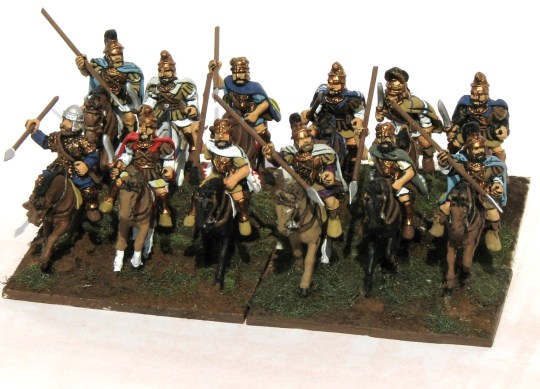Dwa kolejne standy greckich łuczników wykonane, a to oznacza, że teraz przede mną jedynie masy falangitów oraz "macedońska" jazda.
Łucznicy byli stosowani jako harcownicy, w luźnej formacji. Strzelanie z łuku w epoce klasycznej uważano za niehonorowe, pasujące do "barbarzyńców" ze wschodu. Od czasów Wojny Peloponeskiej sytuacja ta zaczęła się zmieniać. łucznicy i inne rodzaje lekkiej piechoty okazali się bardzo przydatni.
W czasach hellenistycznych lekka piechota, w tym łucznicy, byli już niezbędnym elementem armii. Najlepsi łucznicy pochodzący z Krety za swoje usługi domagali się całkiem wysokiej zapłaty. W armiach sukcesorów łucznikami byli już nie tylko najbiedniejsi, których nie stać było na pancerze, ale również przeszkoleni specjaliści.
Two more stands of Greek archers finished and this means that all that is left for the Lysimachid army is a mass of phalangites and "macedonian" cavalry.
Archers were used as skirmishers in loose formation. Archery in a classical period was regarded as unhonorary way of fighting, typical for "barbarians" from the east. Since the Peloponesian War it has started to change because archers and other types of light foot proved to be very useful.
In hellenistic period light infantry, including archers, was already an important part of nearly every hellenistic army. Best archers from Crete were gaining very high pay. In successors armies archeres were vcoming not only from the poorest groups of the society that couldn't affors armour. Often they were skilled professionals.
Been making some 28mm Kits
-
For my Chain of Command 28mm British Infantry the welcome sight of a
Sherman Mk I (see below, the ubiquitous Western Front armour support):
She came up n...
5 godzin temu
























Brak komentarzy:
Prześlij komentarz